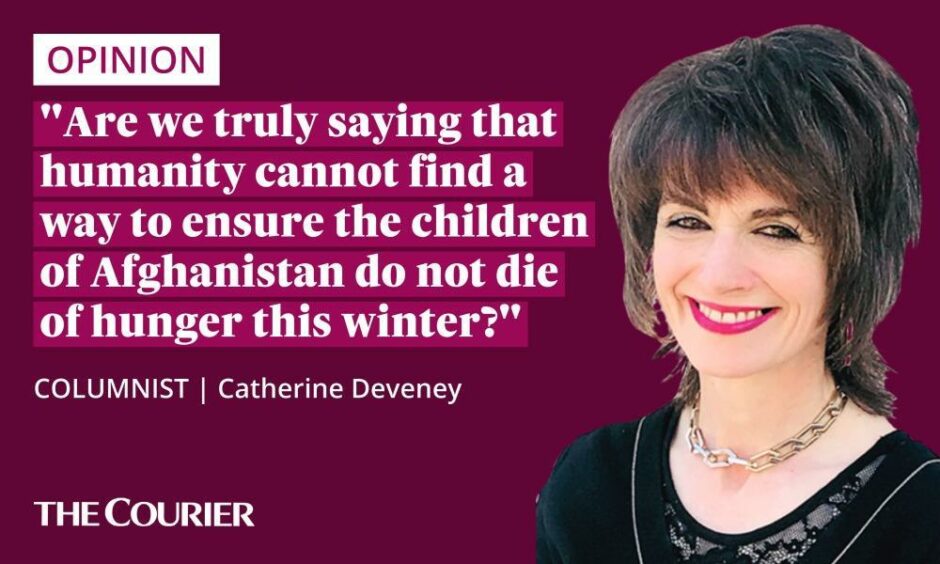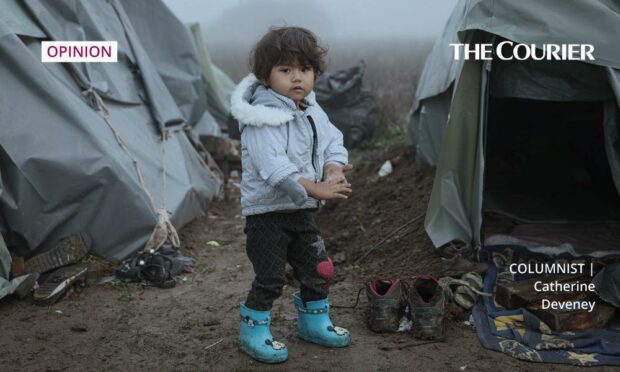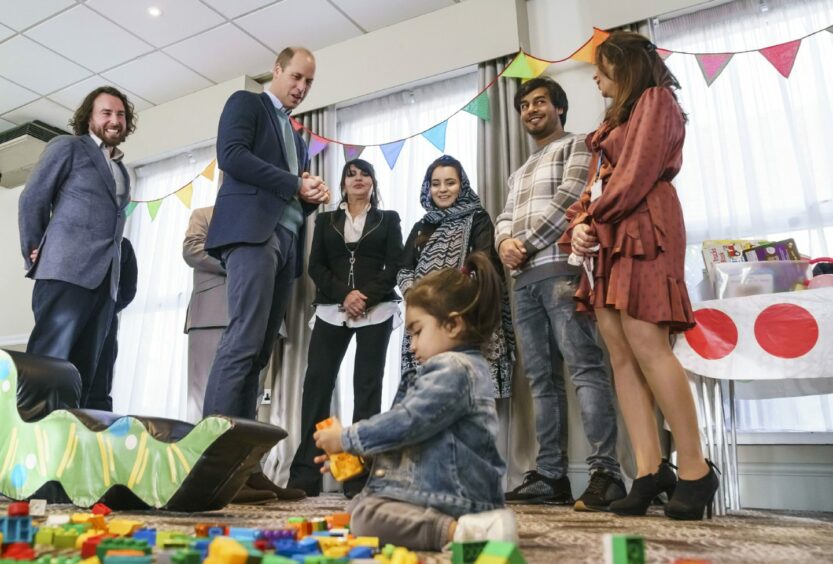When the frosts come and the first flakes of winter snow land lightly on the garden table like delicate lace, the little ghosts arrive.
On cold December mornings, when a single robin lands, tearing the fragile snow-lace, I imagine my children small again.
Sturdy, plump, woollen hats and padded jackets; fairy lights and snowmen; voices calling: “Look, look”; the light of Christmas anticipation in their eyes.
No matter the pleasure of later family Christmases, there is nothing quite like the magic of the Santa years.
Brief and enchanting, the window opens then snaps shut suddenly, the child figures only visible again like small ghosts behind the glass of time.

I had anticipated the winter ghosts this year, but not the moment of their arrival.
It came in the middle of a news bulletin capturing the terrible plight of Afghanistan’s children, who are caught in the middle of political turmoil and a desperate food crisis.
They lay like miniature geriatrics with their young-old, wizened faces; bellies swollen with hunger, lives shrivelled with pain.
But it was the eyes that killed you – dead eyes in sunken sockets, that, at four years old, looked out at the world without hope, interest or energy.
The ghosts arrived then, without warning: healthy, vital, calling out from the past with strong voices, like today’s Afghan children should have.
The Portuguese have a word for the particular pain of nostalgic loss, the longing for what was and can never be again: “saudade”.
It has no direct translation in any other language, yet captures a common emotion that goes beyond words.
It can be prompted by anything: a place, an event, a word, a song.
Children in Afghanistan in spotlight now
Do They Know It’s Christmas? is playing on our radios now, the first song to marry western festivities with African famine.
It was the fastest selling single in UK chart history when it reached number one in December 1984, raising £8 million.
But maybe the most important thing about it was that it was a moment when the people cut through politicians to say what was right; to instigate action in the midst of impotence; to seize power in the face of hopelessness.
Granted, it took celebrity power to kick-start it, but it seemed like a moment when people politics took off.
Sad, then, to realise that – over 30 years later – politics and power struggles still stand like a barrier between the people of the world and humanitarianism.
Afghanistan is one of the poorest countries in the world, its people facing conflict and insecurity, food shortages and serious drought.
According to the World Food Programme, 95% of families are not eating enough food, while Unicef estimates that 3.2 million children under five will suffer acute malnutrition by the end of 2021.
All of this against the backdrop of the Covid pandemic.
Maybe we all need to use our individual skills – whatever they are – to form a collective one
However difficult it sometimes is to write opinion columns, being given a public voice is a huge privilege.
The urge to use that voice wisely was never stronger than when looking at the emaciated frames and listless bodies of Afghanistan’s children.
When Band Aid was formed, musicians used their skill to raise awareness.
Maybe we all need to use our individual skills – whatever they are – to form a collective one.
As a writer, I have the space to say: how can we still be here, in a place where children die of hunger? How can we make it different?
Covid proved we can make the impossible possible
In the terrible trauma of the Covid pandemic, there has been at least one lesson, and that is the way the impossible suddenly became possible.
The way money that didn’t exist appeared for the furlough scheme.
The way the homeless were swept off the streets into hotel accommodation. (If only it had been for their benefit rather than ours…)
The way sheer necessity drove scientists to produce a vaccine in record time.
Are we truly saying that humanity cannot find a way to ensure the children of Afghanistan do not die of hunger this winter?
That we cannot put hope back into four-year-old eyes?
As a malnutrition crisis grips Afghanistan, it is the youngest children who are hit hardest and are struggling to survive. @UNICEFAfg chief of communication @SamMort9 visits Bamyan provincial hospital where doctors tell her that they are concerned the situation will worsen pic.twitter.com/peop06NG4l
— UNICEF Afghanistan (@UNICEFAfg) December 2, 2021
If nothing else, a donation, however small, helps because Unicef are in Afghanistan, bringing essential food, water, healthcare supplies and vaccines to a people on their knees.
And whatever we feel about the hate-filled regime of the Taliban – their oppression of their own people, the absence of democracy – it has nothing to do with those children, who stare out at the world from their prison without hope or expectation.
Whatever we do for them, we do not for the past, not simply because of saudade and the memories of our own children’s childhoods, but for the future.
Catherine Deveney is an award-winning investigative journalist, novelist and television presenter

